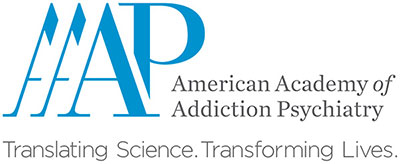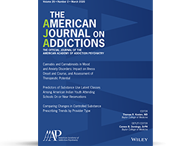Mission Statement
AAAP is a national professional society that focuses on evidence-based prevention, treatment and recovery approaches, particularly for people with substance use disorders and co-occurring psychiatric disorders.
Our primary focus is to:
- Promote high quality evidence-based prevention, treatment and recovery approaches.
- Strengthen Addiction Psychiatry specialty training, foster careers in Addiction Psychiatry and promote Addiction Psychiatry as a recognized specialty.
- Provide evidence-based substance use disorder education to healthcare trainees and healthcare professionals.
- Educate the public and influence policy on substance use, co-occurring psychiatric disorders and related issues.
“AAAP provides a forum for keeping up with the field of Addiction Psychiatry, meeting with colleagues, and keeping me engaged in the relevant politics in our field.”
—Larry Westreich, MD, AAAP Past President, New York
AAAP’s Values
Integrity
- We value individual and organizational honesty, respect and credibility
- We honor commitments to our patients, colleagues and partners
- We are accountable to the highest ethical standards of the profession
Innovation
- We are forward-looking – experimenting, adapting and learning as we go
- We are visionary leaders transforming evidence-based care for addiction and mental health
- We help members bring creative and compassionate solutions to serve their patients
Collaboration
- We create a collegial and patient-centered community
- We build partnerships to leverage greater outcomes than we could achieve alone
- We work together to eliminate barriers and build relationships based on trust and respect
AAAP’s Vision
- Training and educating the general psychiatric community to provide evidence-based prevention and treatment for substance use and other psychiatric disorders.
- Reducing stigma of addiction in the public and professional spheres.
- Increasing awareness that substance use disorders and other mental disorders often co-occur.
- Advocating for robust addiction training requirements in medical schools and residencies.
- Influencing research and funding priorities in the public and private sector.
- Building and strengthening collaborations with related professional organizations and valued partners.
- Attracting new trainees with a strong network of addiction psychiatry fellowships.
- Advocating for high quality treatment standards and bringing oversight to the addiction treatment industry.
- Working to transform the justice and legal system to better serve patients with addiction.



